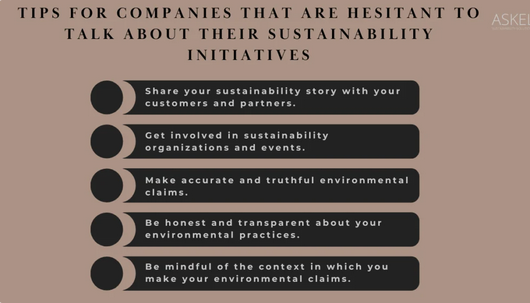Yes, greenwashing is a consequence of sustainability trends in marketing. Greenwashing refers to the practice of misleading consumers about a company’s environmental practices or the environmental benefits of a product or service. As sustainability becomes an increasingly important and attractive selling point, some businesses may engage in greenwashing to capitalize on the growing consumer demand for eco-friendly and socially responsible products. The purpose f this study is to answer the question, is greenwashing a consequence of sustainability trends in marketing?

Consumer Demand for Sustainability:
As consumers become more environmentally conscious and seek sustainable products, businesses may feel the pressure to appear more environmentally friendly, even if their practices are not genuinely sustainable.
Competitive Advantage:
Companies may use greenwashing to gain a competitive edge over rivals by positioning themselves as more environmentally responsible, even if their sustainability efforts are minimal.
Market Perception:
Businesses recognize that being seen as environmentally responsible can enhance their reputation and brand image. Greenwashing allows them to project a positive environmental image without making substantial changes to their practices.
Lack of Clear Standards:
The absence of clear and universally accepted standards for defining and measuring sustainability can create ambiguity. This lack of standardized criteria makes it easier for companies to make exaggerated or misleading sustainability claims without facing immediate scrutiny.
Complexity of Supply Chains:
Many products have complex supply chains, making it challenging for consumers to verify the authenticity of sustainability claims. Companies may exploit this complexity to make misleading statements about their environmental impact.
Inadequate Regulation:
In some regions, regulations related to environmental claims and sustainability labeling are insufficient or loosely enforced. This lack of regulatory oversight can allow companies to engage in greenwashing without facing significant consequences.
Marketing Emphasis Over Real Change:
Some businesses may prioritize the appearance of sustainability in marketing materials over making substantive changes in their operations. This approach allows them to benefit from the positive association with sustainability without committing to meaningful practices.
To address greenwashing, consumers, regulatory bodies, and advocacy groups play important roles in holding businesses accountable. Consumers can become more discerning by researching and supporting companies with genuine sustainability practices. Regulatory bodies can establish and enforce clear standards for environmental claims, while advocacy groups can raise awareness and scrutinize companies engaging in greenwashing practices.
As sustainability continues to be a significant trend in marketing, businesses that genuinely embrace sustainable practices and transparently communicate their efforts are more likely to build trust with consumers and contribute to positive environmental impact.
